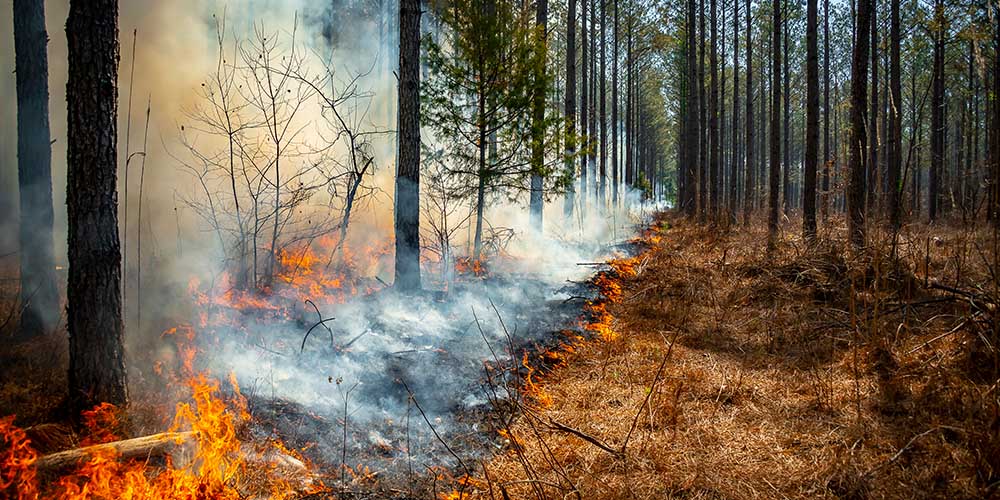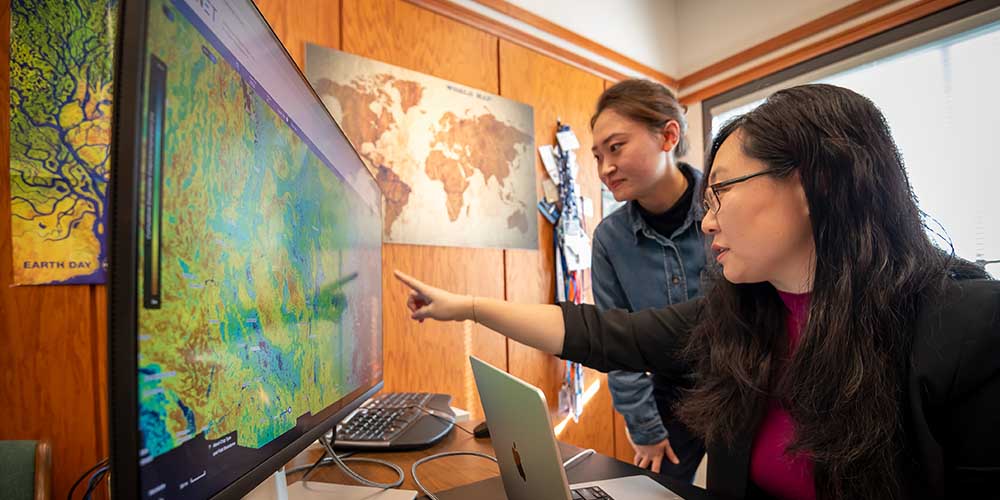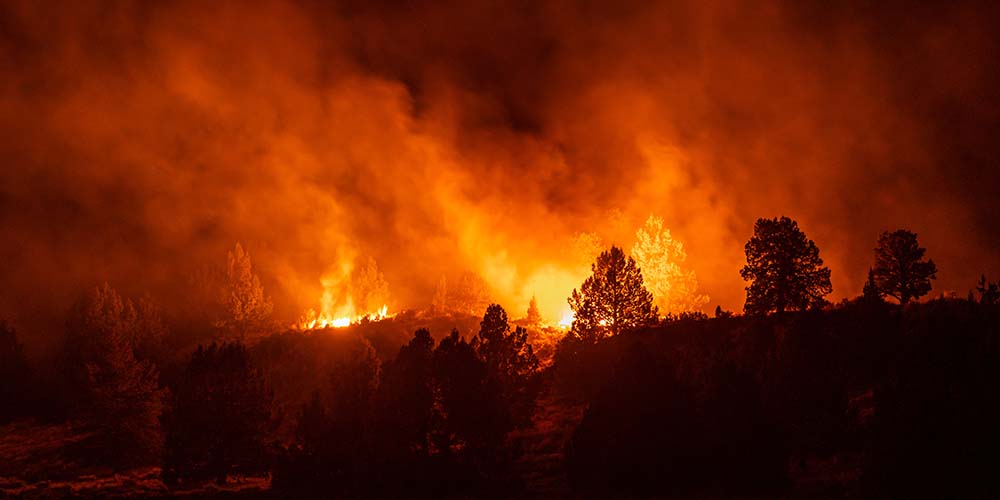Forest Measurements and Spatial Technology Stories

Helping Pyrophytes Fight Back
Prescribed fire is a method used to help provide positive ecosystem services, but research suggests that this may inhibit oak regeneration. FWRC scientists are researching the effects of fire suppression on dwindling upland oak and pine populations. Without fire as a part of their ecosystems, fire-resistant oak seedlings and saplings are unable to survive against their competition. If these oak trees are unable to grow to full maturity and drop flammable leaves to offer kindling for the next fire, the positive feedback cycle in this ecosystem is broken. With less productive fires, fewer of the oaks and pines will survive into adulthood, meaning that the already meso-leaning forest composition may, one day, become completely unable to burn, putting the oak and pine trees at risk.
The research aims to provide forest managers with a guide as to how to most effectively burn in forests, in order to restore the desired forest composition.
2019

Big Picture
Dr. Yun Yang, an assistant professor at Mississippi State's Forest and Wildlife Research Center (FWRC), is using satellite technology from NASA's Landsat program to address water resource management challenges in the Mississippi Delta. As part of the NASA Acres project, Yang is studying crop water usage and evapotranspiration to help improve groundwater sustainability in this agriculturally important region. The project, which involves over 30 scientists, aims to enhance agricultural strategies and resource efficiency. Unlike commercial enterprises, NASA's commitment to open science ensures that models developed in this project will be publicly available to benefit society. Yang's work was published in prestigious journals and presented globally.
2023

FWRC Scientists Study the Effects of Natural Disturbances on Forest Ecosystems
Wildfires are part of nature's method of bringing balance to ecosystems. However, fire suppression practices combined with expanded human settlement into fire prone territories over the last century have disrupted that balance and exacerbated the damage done by fire. Researchers in the Department of Forestry have studied how evapotranspiration, or water usage by vegetation, is an indicator of an ecosystem's overall health. Working with scientists from the University of California, the team analyzed satellite data from 1985 to 2017 and found that wildfires increased the percentages of evapotranspiration over a 15-year period. They also found that taking forest management actions such as thinning or controlled burns would result in a reduction in evapotranspiration, mitigating the impact of continued drought and future wildfires.